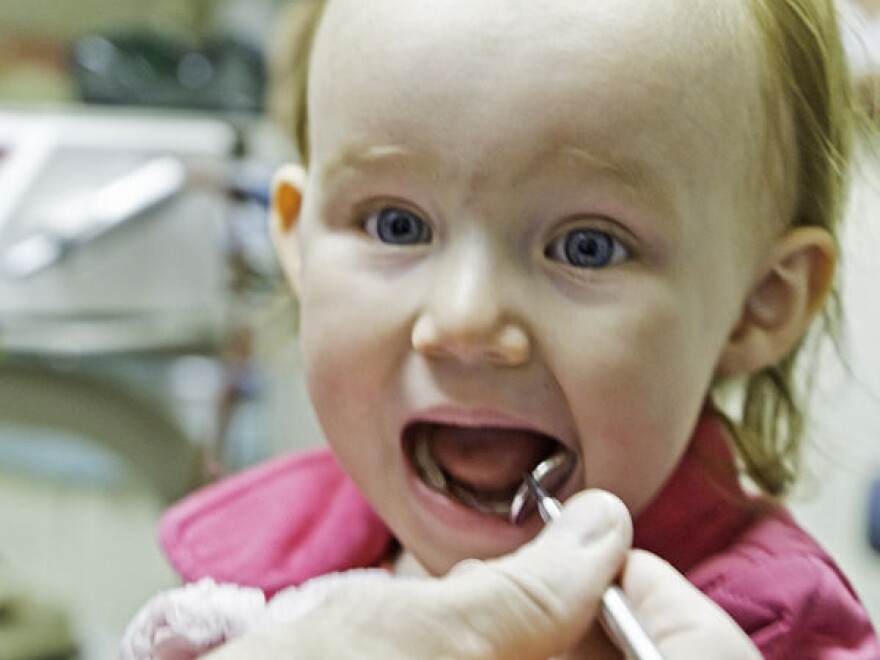There is a void of dentists in Florida.
A coalition calling itself Floridians for Dental Access has a plan to fill the cavity: dental therapists.
The group is asking lawmakers to sign off on a new health care license for what are known as dental therapists, who could perform a bevy of activities such as basic clinical dental treatment and preventive services under the supervision of dentists.
“I think it’s a bold idea,” Sen. Jeff Brandes, R-St. Petersburg, said. “I’m somebody who spent the last eight years of my legislative career working on trying to find the one big idea in every area of policy. This, I think, is the one big idea in health care.”
The Commission on Dental Accreditation adopted education standards for dental therapy programs in 2015, and several states have authorized dental therapists including Alaska, Arizona, Maine, Michigan, Minnesota and Vermont.
Approving a license for dental therapists is opposed by the Florida Dental Association, which contends there are better ways to help improve access to dental care in the state. Joe Anne Hart, chief legislative officer for the Florida Dental Association, said there would be a lag between approving a new license and actually graduating students who could then begin working.
Hart also worried that the proposal could allow for indirect supervision of dental therapists, which means dental therapists wouldn’t have to be in the same locations as dentists.
As an alternative, Hart said the Legislature could help put more fully licensed dentists in communities by supporting loan-forgiveness programs for dentists who agree to work in public health or to work in medically underserved areas.
The Florida Dental Association is asking the Legislature to appropriate $500,000 to fund a forgiveness program for 10 dental students who would be willing to work in public-health settings or underserved areas. Hart said each dentist could treat up to 2,000 patients annually.
But while the association opposes the dental-therapist idea, some dentists, such as Jose Peralta, support such legislation. Peralta, who has practiced for 30 years, works at a federally qualified health center in Pasco County. He said patients sometimes have to wait up to four months to be seen by a dentist where he works.
A news conference Wednesday to support the dental-therapist proposal came on the heels of a report issued by The James Madison Institute dubbed “Dental Therapists: Sinking Our Teeth into Innovation Workforce Reform.” According to the report, 30 of the state’s 67 counties are designated rural areas in which only 2.4 percent of Florida’s general dentists practice.
Also, a state Department of Health report about third-grade children in the 2013-2014 school year showed that dental health is a potential problem. Looking at 41 public elementary schools across 19 Florida counties, the report showed that nearly one in four children, or 23.4 percent, had untreated tooth decay. The prevalence of untreated decay was highest for non-Hispanic black children (34.8 percent) and for children from schools with the highest percentages of students enrolled in free or reduced-price lunch (33.5 percent).
The report also showed that 4.1 percent of the third-grade students in the project required urgent dental treatment.
People without access to regular dentists can go to one of five “safety net” settings to get treatment: academic institutions, community health centers, county health departments, federally qualified health centers and other state government clinical settings. According to a 2016 Department of Health survey of dentists, 4.8 percent who reported practicing in Florida work in “safety net” practice settings.
Florida had 11,362 dentists with in-state active licenses during the 2017-2018 fiscal year, according to a Florida Department of Health licensure report. Of those, 794 licenses were issued for the first time, not renewed.
The Floridians for Dental Access website listed a series of groups that support dental therapy, ranging from The James Madison Institute and the Florida Chamber of Commerce to the Florida Dental Hygienists’ Association.

